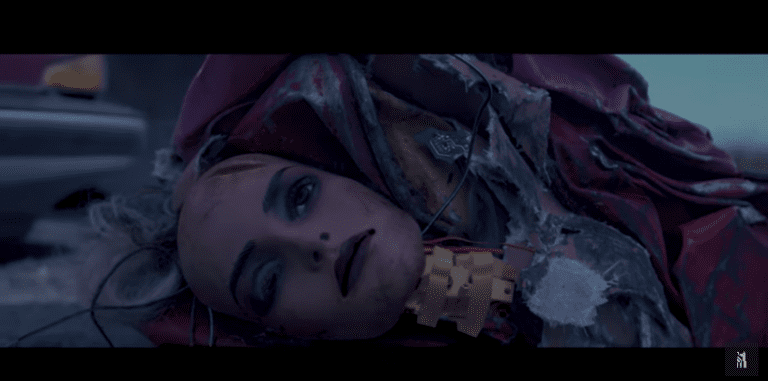The Spotlight Effect describes the misguided perception that more people are aware of us and watch us than is actually the case. As children, we believe that we are the center of the universe, but as we mature, we realize that we are just another grain of sand on the shore of an endless beach. It happened to me in college when suddenly seemed surrounded by more brilliant, accomplished people than I dreamed that I would ever meet. They humbled, challenged, and exhilarated me all at once, and my life expanded exponentially from the one that I once imagined that I’d find in the wider world.
I would come to love the Ann Landers quote that speaks to the Spotlight Effect, noting that in our youth and because of our own social development, we do think more about what others think of us. But as we age, we realize that most people don’t think about us much at all, and we then hit that point when we don’t care much about how others perceive us, save for that small few of those who are most important to us. I relish that more and more as I age, moving further into the era of life that Erikson called Generativity versus Stagnation. Changing hormonal drives and the challenges of life shift us away from the relationships that once served as our most powerful motivators and chief concerns. We move forward into considering how we lived the first half of our life and whether we left something of lasting value that will continue on after we shuffle off this mortal coil.
If we’re willing, age and wisdom teach us that those things that we thought were so earth-shattering when we were young fade into distant memories that even we may be graced enough to forget. A life well-lived blossoms into much more than the self, and we grow to become a part of events, places, and even ideas. We become an essential part of the whole of life where we can find meaning and even joy on the good days. Our perspective grows past those spotlight moments as we grasp a far more holistic picture of the world around us.
In High Demand Religion
When I entered the high demand church, all packed with women with babies and children who looked at twenty-something me with something that felt rather like disdain, my world closed around me. I’d basically done all that I wanted to do as my work experience became routine, so I made my life at our church THE place that I was always meant to be as I waited for the family that I believed would fill my house. My husband and I were in the honeymoon phase of membership and under heavy love bombing after the Shepherding Discipleship tradition, and the spotlight felt rather good (until it didn’t). In that world of the TACO (the Totalist Aberrant Christian Organization – that was often a church to me), I discovered something true in that hothouse world that was not true in the real one. In that microcosm of covert abuse with plenty of love mingled within it, they watched me. I wasn’t the kind of attention that I understood as a child where I seemed to be center stage when my scene would begin. Others watched me for signs of both compliance and protest. The overlords watched me, along with my peers and those mothers who watched me – the pariah – from afar. I didn’t even believe that I was observed and always found it strange when someone noticed that I’d broken some rule
(until it became commonplace).
In this church-of-sorts, something more like the traditional spotlight replaced our source of worth, something given by the leaders to members. We were not permitted to have “independent spirits” that derived our own worth, satisfaction, and meaning from inside ourselves. Reassurances from the group became our sole source of encouragement in what soon revealed a religion of works. We warmed ourselves on emotionally cold nights with memories of times when we managed to get into the spotlight for special attention for something we’d finally done something ‘right’. Did we get invited to elder’s homes for dinner? Did the divine leaders pull us into their tight circle in some new, always shifting initiative at the church? Did we bake the best pie? Were we one of the select few who would be asked every year to accompany the pastor on his vacation?
Exiting into Outer Darkness
When I got out of the fray of that cultic church, I breathed paranoia. I panicked about “sowing discord among the brethren.” I waited for God to pound me into a fine powder as Gothard taught and our elders repeated often. I was also compelled to talk about what had happened, especially when I still believed that God just had to ‘fix’ those things that were wrong in that community. I was watched and gossiped about after I left. I knew from working in the church office that the pastors and elders did keep tabs on other members, informing other pastors about people who had gone if they turned up at one of these other area churches that basically followed the same theology. They would pool together once monthly to swap gossip under the guise of keeping watch over our fallen souls.
For those who leave such a system, the challenges to break free of the induced spotlight and scrutiny and micromanaging and influence is no small thing. High demand groups thwart the psychosocial development of children because of the unreasonable demands and prohibitions placed upon them. They learn to deny their initiative, growing shame and guilt to toxic extremes. Gender roles constrain their interests which they must channel into accepted areas of study if they are even encouraged to study at all after homeschooling. Adult children often spend a good bit of their adult lives filling in the gaps of what they missed in their overtly controlled development.
The religious system under patriarchy demands a different kind of spotlight, and it leaves a different sort of effect in its wake.
Further Reading:
- Gilovich, Griffin, and Kahneman’s Heuristics and Biases
- Banaji and Greenwald’s Blind Spot: Hidden Biases of Good People
- Ross’ Everyday Bias
- Braiker’s Whose Pulling Your Strings?
- One of the affordable books on Cognitive Bias at Amazon.com
Cynthia Mullen Kunsman is a nurse (BSN), naturopath (ND) and seminary graduate (MMin) with a wide variety of training and over 20 years of clinical experience. She has used her training in Complementary and Alternative Medicine as a lecturer and liaison to professional scientific and medical groups, in both academic and traditional clinical healthcare settings. She also completed additional studies in the field of thought reform, hypnotherapy for pain management, and Post Traumatic Stress Disorder (PTSD) that is often associated with cultic group involvement. Her nursing experience ranges from intensive care, the training of critical care nurses, hospice care, case management and quality management, though she currently limits her practice to forensic medical record review and evaluation. Most of her current professional efforts concern the study of manipulative and coercive evangelical Christian groups and the recovery process from both thought reform and PTSD.
She blogs at Under Much Grace and Redeeming Dinah.
Read more by Cindy Kunsman
If I’m Never Ready, I Can at Least be Wise
Stay in touch! Like No Longer Quivering on Facebook:
If this is your first time visiting NLQ please read our Welcome page and our Comment Policy! Commenting here means you agree to abide by our policies.
Copyright notice: If you use any content from NLQ, including any of our research or Quoting Quiverfull quotes, please give us credit and a link back to this site. All original content is owned by No Longer Quivering and Patheos.com
Read our hate mail at Jerks 4 Jesus
Check out today’s NLQ News at NLQ Newspaper
Contact NLQ at Suzanne(dot)[email protected]







